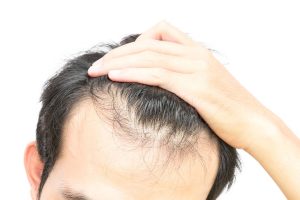For some people, it doesn’t appear to make sense why they can’t lose weight. They exercise 4 times per week or more with intense cardio and interval strength training. They eat a clean, low carb diet and have cut out most sugar and alcohol.
This is a great weight-loss plan if the major hormones of the body are at optimum levels and would typically allow weight loss at 1-2 pounds per week. However, cortisol, insulin, estrogen and testosterone all play a part in weight control and when these hormones are too high or too low weight loss can be difficult.
Cortisol is our stress hormone and we need it to help us wake up in the morning, to raise our blood pressure when we go from sitting to standing and to help us manage through stressful events. The problem lies when cortisol levels are consistently high and the body stores fat away, mostly in the abdominal region and won’t let it go. Stress is the main cause of high cortisol but stress can be defined in many ways – mental/emotional, physical (such as extreme exercise), illness and digestive disorders to name a few. Cortisol levels can be balanced with lifestyle changes, diet, vitamins, minerals and herbs.
Insulin is the hormone responsible for moving sugar in the blood into the body to be used for energy or stored as fat. When a person consumes a diet high in carbohydrates, sugar and alcohol, insulin levels can become higher to help control the influx of sugar. This can cause cells to have less of an affinity to the high levels of insulin and is termed insulin-resistance. The result is weight gain and can lead to diabetes if not controlled. To help reverse insulin resistance, exercise and a high protein diet with low refined sugars are great ways to improve proper blood sugar regulation.
The sex hormones estrogen and testosterone are believed to also play a role in weight loss and maintenance. High levels of estrogen and low levels of testosterone can contribute to abdominal weight gain. Signs of high estrogen in women include painful and heavy periods and possible ovarian cysts. Estrogen levels can be high in men and can be the cause of low testosterone levels. Low libido, low muscle mass and decreased confidence and drive are symptoms of low testosterone in men and women. Sex hormone levels can be tested by urine or saliva and appropriately balanced with nutrition, herbs and natural hormone therapy.
Also Read These Related Pages
How Your Digestive Health Affects Your Metabolism Including Energy and Weight Loss
Your DNA may hold the answers to guide you to successful weight loss
Is Stress Affecting your Weight Loss or Muscle Building Program?
Balancing Your Hormones for Weight Loss
Stress Affecting Your Health & Weight Loss?
Medical Weight Loss Vancouver
Natural Ways to Reduce Belly Bloat!
Naturopathic Weight Loss
Weight Loss After Summer
Why Can’t I Lose Weight?






